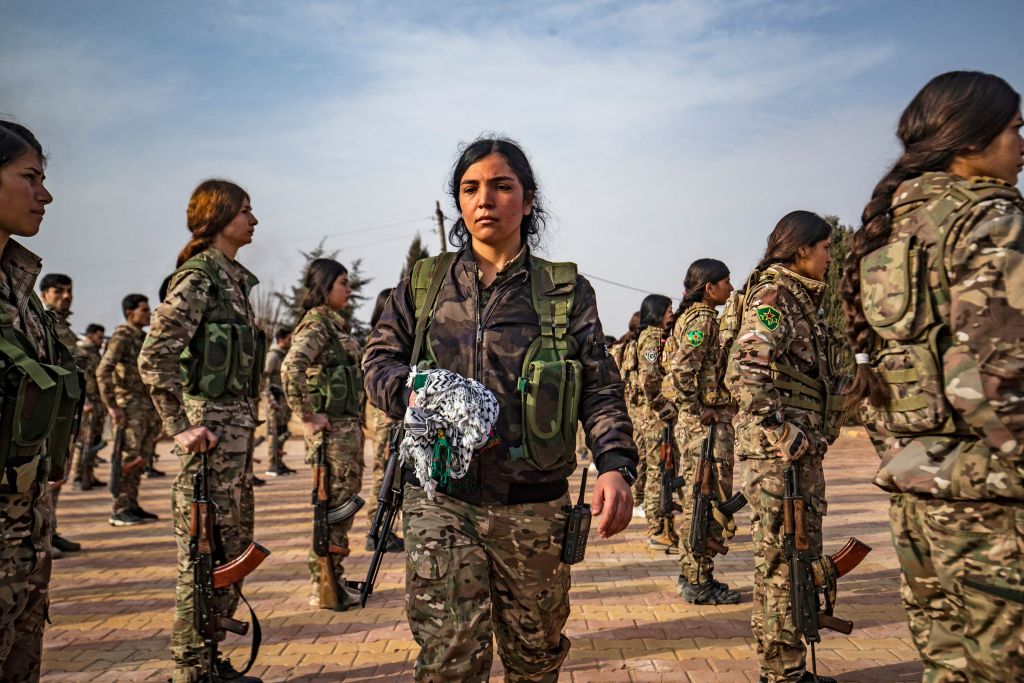Executive Summary
In recent months, the United States has made its most concentrated efforts to date to address the armed conflict between the government of Turkey and the Kurdistan Workers’ Party (PKK) and, more broadly, Turkey’s “Kurdish question” – the unresolved debate over what civil, political and cultural rights the country’s Kurdish minority should be guaranteed. Credible reports indicate that the United States has leveraged diplomatic backchannels to pressure the PKK to declare a cease-fire in the conflict and that the PKK has been receptive to this request.
This limited but positive step toward peace has created a window of opportunity for policymakers in Washington to push for a more durable settlement to one of the Middle East’s longest-running and bloodiest conflicts. Failure to capitalize on this moment may result in the launch of new Turkish military campaigns, not only against the PKK but also against the U.S.-allied Syrian Democratic Forces (SDF) in northeast Syria. Such campaigns could lead to a resurgence of ISIS and the destruction of a fragile political project that has seen the expansion of women’s rights and democratic governance across northeast Syria – key pillars in the Biden administration’s push for democratic resilience around the world.
The United States can use these events not only to address long-unresolved challenges to security and stability in northeast Syria but also to compete strategically to counter the influence of adversaries including Russia and Iran, which are poised to gain influence in northeast Syria in the event of a destabilizing Turkish offensive.
Because of the unique gendered impacts of the conflict, particularly in Syria, and the vastly divergent visions of the role of women in public life and society held by Turkey and Kurdish groups across the region, a gender analysis can help the U.S. take its next steps. The Women, Peace, and Security (WPS) agenda and the National Strategy on Gender Equity and Equality provide policymakers with valuable tools to chart a new course toward deeper engagement on this issue.
Key Takeaways
- A political settlement to Turkey’s “Kurdish question” provides the best chance of preserving long-term stability in northeastern Syria and addressing major outstanding issues in U.S.-Turkey relations, two important steps for ensuring long-term regional security and stability.
- Recent developments, including a partial cease-fire declared by the PKK, and potential developments, including the prospect of a new government in Turkey that may be more willing to pursue negotiations, present a rare opportunity for U.S. diplomacy on this matter.
- The gendered impacts of the conflict underline and exacerbate its seriousness and give policymakers important avenues through which to act.
Policy Recommendations:
- Maintain opposition to any new Turkish military incursion into northeastern Syria.
- Counter forms of Turkish pressure short of a ground incursion that are particularly destabilizing, especially those which benefit ISIS, Iran, and Russia.
- Consolidate a pro-peace policy on the Kurdish question by reassessing U.S. policies that have incentivized conflict or had a chilling effect on dialogue and building on existing political and security frameworks to urge de-escalation in the region.
- Use the Women, Peace, and Security Strategy and National Strategy on Gender Equality and Equity to reassess policies that have contributed to conflict or may pose obstacles to diplomacy.
This dossier is a joint project of the New Lines Institute and the Kurdish Peace Institute, building on nearly a month of field research and interviews by lead author Meghan Bodette with Kurdish political leaders in northeast Syria and northern Iraq.







